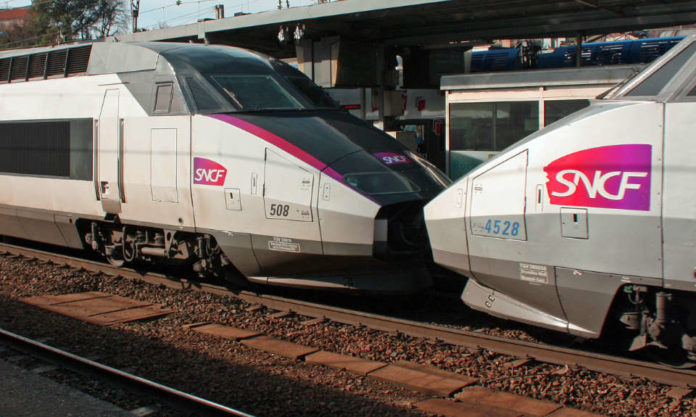During these dark days, the importance of trains in maintaining our ways of life is uppermost. With air travel decimated, many rail services continue, transporting people, freight and medical aid, across countries and continents.
Prior to China’s High Speed Railway that gives Nanjing its title as destination of the world’s fastest train, that record was once held by France, with its TGV (Train à Grande Vitesse) service between Champagne-Ardenne and Lorraine. Ironically, it surrendered the title to China and a service to and from Wuhan.
That was in 2013. Today, France has transformed one of its TGV fleet into a mobile hospital unit. The train is capable of carrying 25 patients, with four in each carriage in repurposed stretchers that are supported above the seats. According to Jean-Pierre Farandou, President of the national state-owned SNCF, each carriage carries a six-person medical team, reports Railway Gazette. In addition, the dining car has been transformed into a special area for use in the event that a patient’s condition deteriorates in transit.
- Automated High-Speed Train to Take us to Great Wall of China!
- Countdown to Winter Olympics as 8 New High-Speed Lines Open
- “The Hulk” Debuts in Nanjing; Salaries Cut Over Train Failures
First operated on 26 March, the train took 20 patients from hospitals in Strasbourg and Mulhouse to medical facilities in Angers, Le Mans, La Roche-sur-Yon and Nantes.
Elsewhere in Europe, rather than stopping their trains services altogether, several countries have taken steps to protect the health of both passengers and staff.
In Amsterdam, plastic screens have been installed around tram conductors’ desks, much like those employed in many taxis in China.
Elsewhere, steps taken by railway authorities in Spain to help prevent the spread of Covid-19 include no longer accepting cash payments, for the duration of the lockdown.
In Poland, one of the railway operators in Silesia province (Silesian Voivodeship) has begun testing the use of TitanSolid in its disinfection efforts. The titanium dioxide-based product is commonly used in both food production plants and hospitals.
Freight Trains Essential for Quarantined Cities
China may have taken the unprecedented step to quarantine the city of Wuhan, but people still needed to eat, while the city was also in dire need of medical supplies. With roads in and out closed, freight trains became the city’s lifeline, capable of moving in huge amounts with minimal risk.
- Mouldy Food Puts High Speed Train Catering Company Under Fire
- Six Caught Taking “K-Powder” in Toilets of Train in Nanjing
- Is it a Bike? Is it a Plane? Or is it a High Speed Train?
Among the essential links was one from Shanghai to Wuhan, operated by Nippon Express, one of the world’s top logistics firms, in collaboration with China’s Sinotrans. The daily Full Container Load service runs to the Wujiashan freight terminal in Wuhan. A standard 20-foot container can carry up to 25,400 kilograms of cargo.
On an intercontinental level, freight service between China and Europe is being maintained by Geodis, the logistics arm of SNCF. An 18-day service runs from Xi’an and Chongqing to Hamburg and Duisburg, while Xi’an and Hamburg are also linked by an express service that takes just 12 days.









